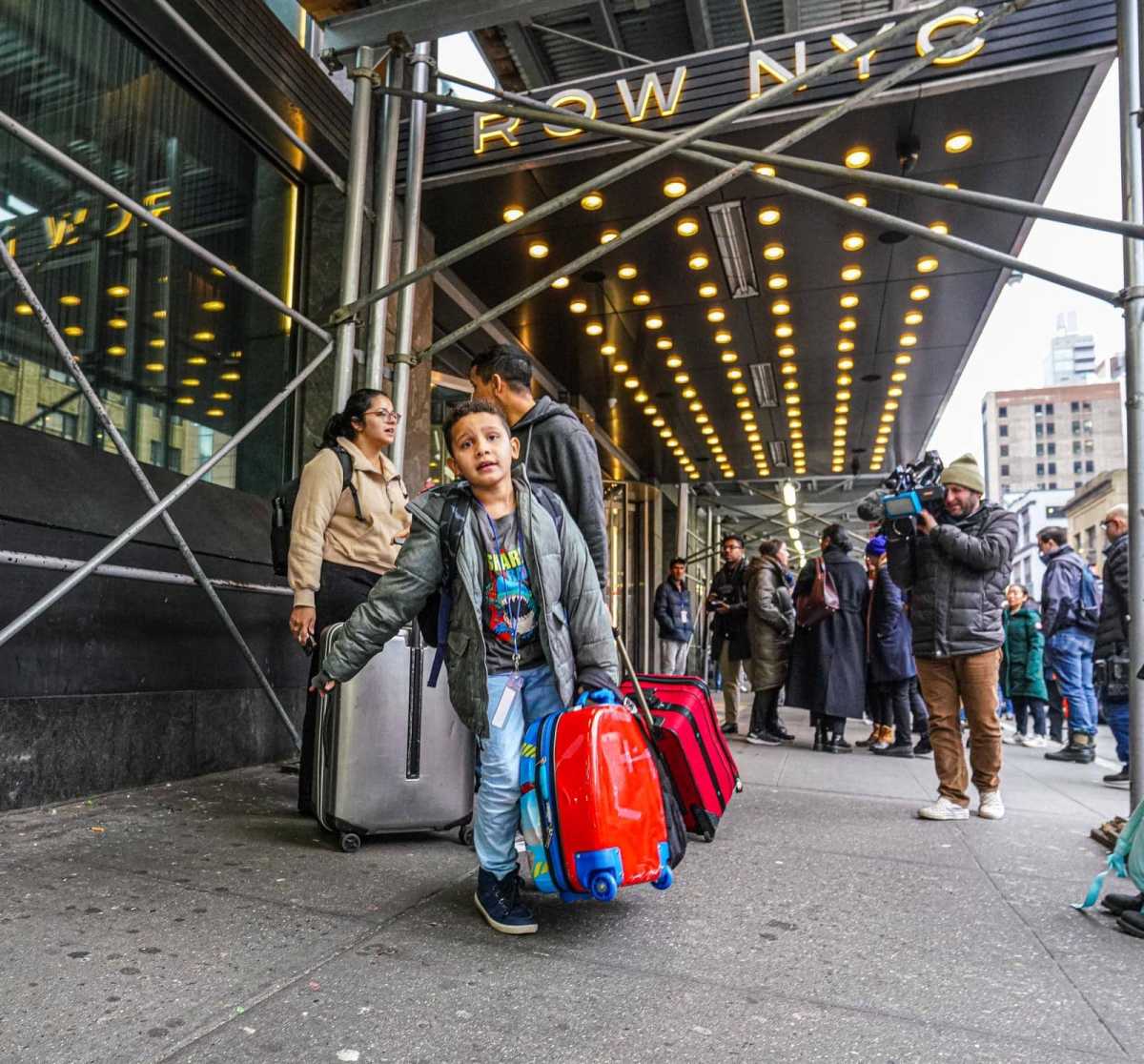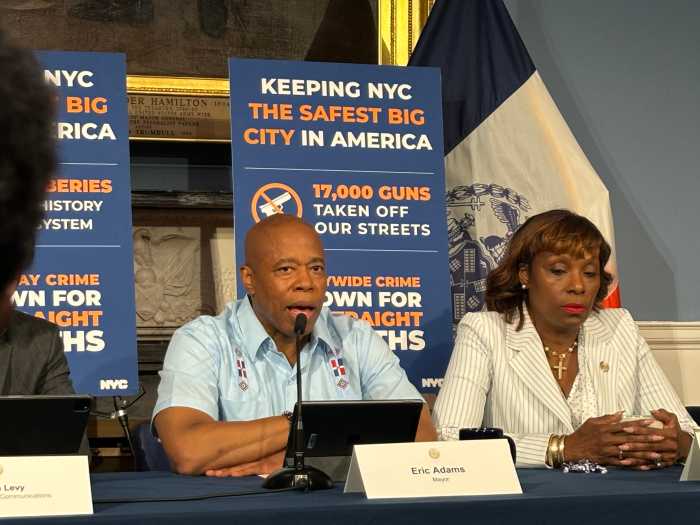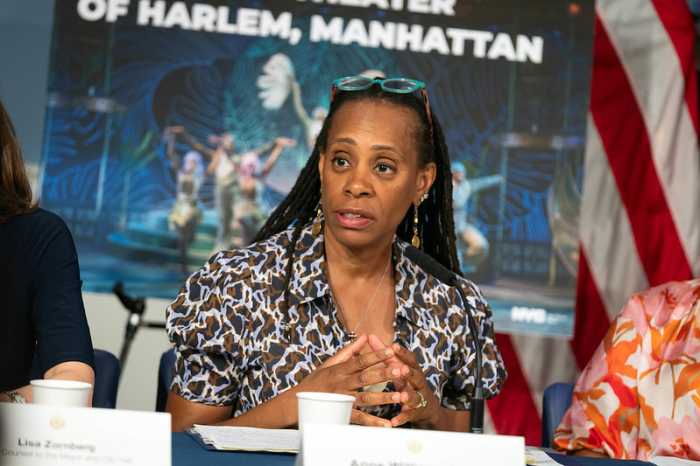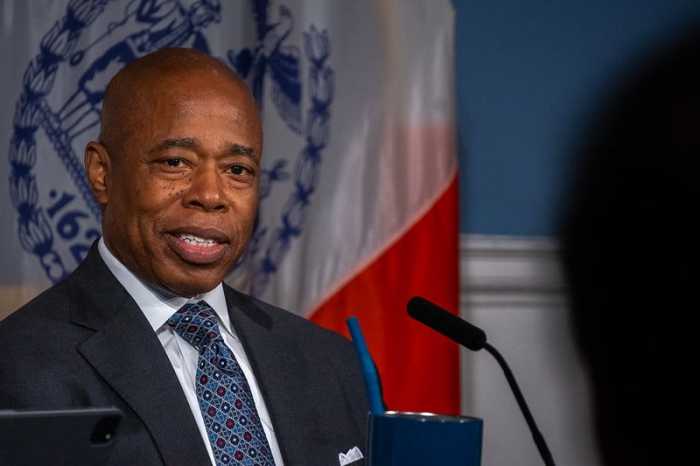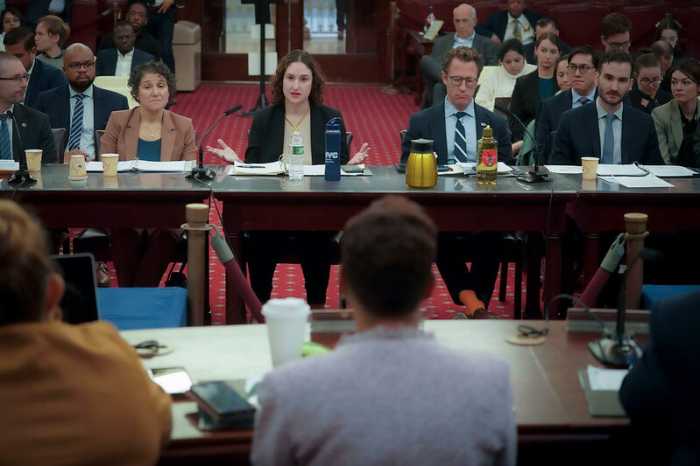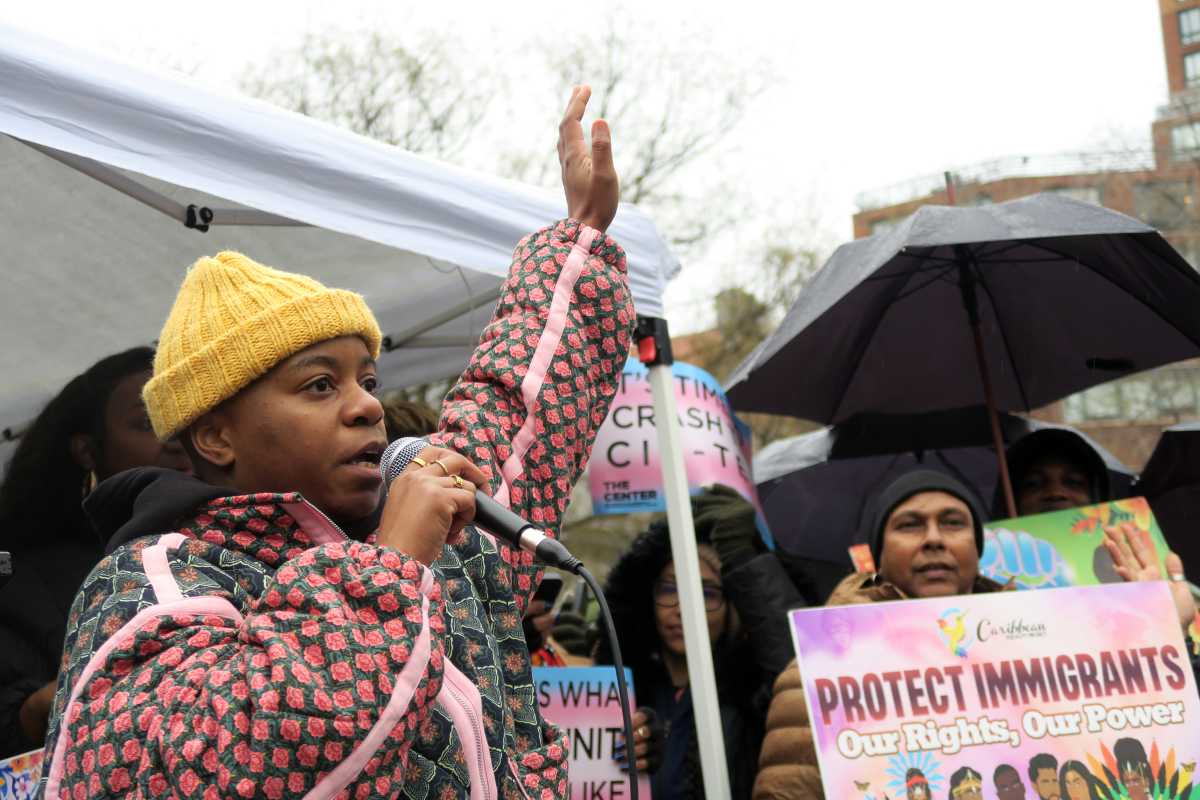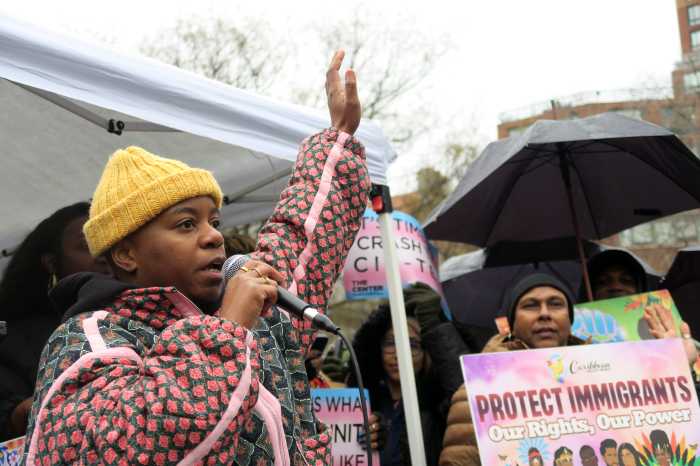A pair of state lawmakers introduced legislation Monday aimed at outlawing the 30- and 60-day shelter stay limits which Mayor Eric Adams’ administration has used to bring down the population of migrants in its care.
The legislation, co-authored by Assemblymember Catalina Cruz (D-Queens) and state Sen. Brad Hoylman-Sigal (D-Manhattan) in partnership with the family shelter provider Win, would prohibit the use of limits on individual and family stays at both homeless shelters and emergency housing — according to a news release. It would also bar state and city agencies, municipalities and contracted providers from moving individuals out of shelter unless they are in “imminent danger.”
The state bill aims to end the Adams administration’s policies — a 30-day limit on time in shelter for single adults and a 60-day ceiling for families, both of which many lawmakers and advocates see as destabilizing to migrants and wholly unnecessary.
“The current shelter time limit policies are not only inhumane but counterproductive, thrusting families into further uncertainty and distress,” Cruz said, in a statement. “Our legislation to end these arbitrary 30- and 60-day shelter limit policies is more than a policy change; it’s a commitment to human rights and a testament to New York’s enduring spirit of inclusivity and compassion.”
Cruz and Hoylman-Sigal are not the only lawmakers attempting to block the city from capping migrant shelter stays. Last fall, City Council Member Shahana Hanif (D-Brooklyn) introduced a city bill that would bar the use of shelter stay limits at the local level.
The policies, which the Adams administration started imposing last summer, see migrants given notices that they must find alternative housing outside of city shelters within 30 or 60 days. It was rolled out with “intensified” case management, intended to help newcomers secure a more permanent place to live.
Single adults who do not secure new accommodations within the given timeframe must then apply for a new shelter placement at the Saint Brigid’s reticketing center in the East Village. Families must return to the migrant intake center at the Roosevelt Hotel in Midtown.
Hoylman-Sigal, in his own statement, labeled the city’s decision to “arbitrarily” evict single adults and families alike as “cruel.” The lawmaker argued the limits have taken away migrants’ housing and forced them to wait on lines outdoors for new placements during the winter months.
“Kicking people out to the streets during the coldest time of year won’t help solve our housing crisis and forcing asylum seekers out of shelters will do nothing to mitigate the migrant situation,” the state senator said. “Let’s do the compassionate thing and make certain that those who need a place to stay can find one in our shelter system and can stay there until more permanent arrangements can be found.”
When it comes to families in particular, pols and advocates argue the limit is destabilizing to children, by potentially forcing them to travel further distances to school or change schools altogether. And that it could be disruptive to parents attempting to get their families into permanent housing, by making them change mailing addresses.
Win, the family shelter provider, is headed by Christine Quinn, the organization’s president and CEO, and a former City Council speaker who made an unsuccessful mayoral bid in 2013. She blasted the shelter limits as undermining “the little safety, security and stability” asylum seekers in New York shelters have.
“Evicting asylum seekers is unconscionable, unacceptable, and simply inhumane — and I thank Assemblymember Cruz and Senator Hoylman-Sigal for pushing this legislation forward,” Quinn said in a statement. “The City’s migrant crisis demands real solutions, not short-sighted and senseless policies that make life harder for our new neighbors. We look forward to working with our leaders in Albany to enact this legislation, defend our values as New Yorkers, and protect asylum seekers from being senselessly evicted.”
Rollback would be costly to city
However, the administration has vigorously defended the policies as essential tools for bringing down the city’s shelter census and controlling the migrant influx’s ballooning price tag.
Mayoral spokesperson Kayla Mamelak Altus, in a statement, said the policies are “tools in our extremely limited toolbox” to help new arrivals find more permanent living situations. She also said the city is at its “breaking point” — something the administration has been repeating for the better part of a year — and cannot continue to shelter tens of thousands of migrants indefinitely.
Mamelak Altus also charged that ending the policy would be costly for the city just as it has taken steps to bring down migrant crisis spending.
“The rolling back of this policy would require us to add billions of dollars, once again, to our city’s budget,” Mamelak Altus said. “We are grateful for the partnership of our federal and state partners, but, instead of introducing counterproductive legislation, we would encourage members of the legislature to join us in advocating for meaningful financial help and continuing to ask for more assistance to help resettle families across New York state and the country.”
Read more: City Council to Vote on How Many Stops Act in NYC



